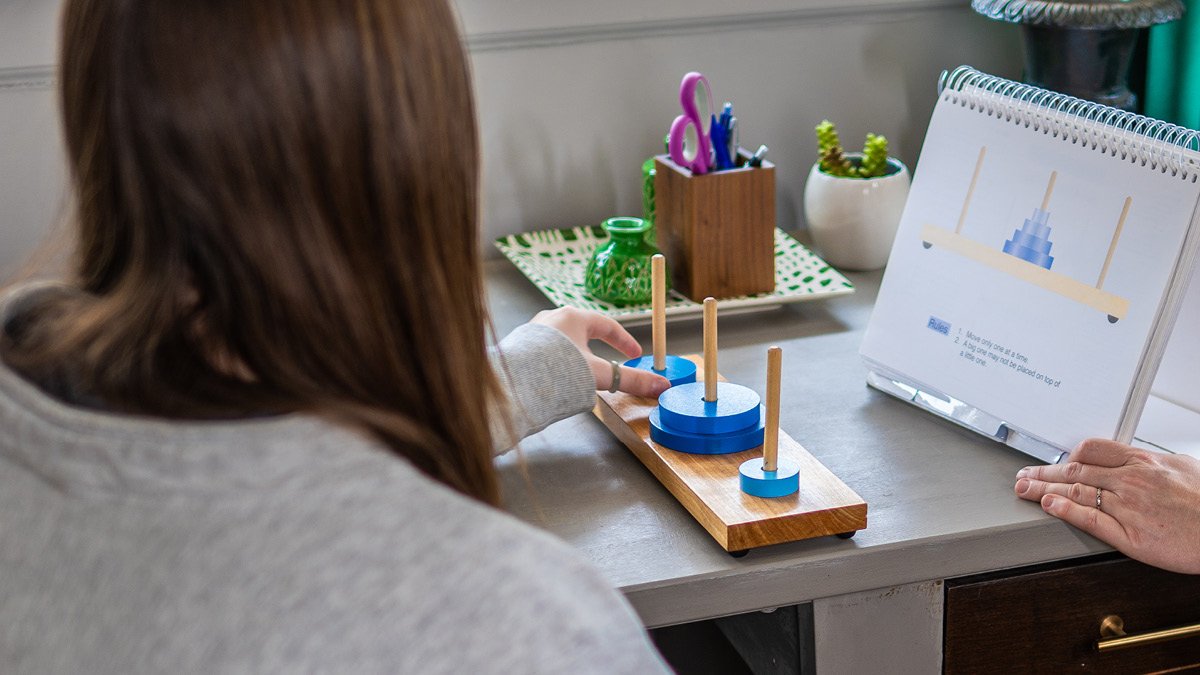Getting Ready for a Psychological Evaluation
A helpful guide to help you learn about the process & testing activities.
3 min read
What You'll Learn
The Process
Testing Activities
Maintaining Current Routines
Getting a psychological evaluation can be intimidating, especially for children. Even merely mentioning the word “test” can be incredibly stressful for some people, which is why we tend to avoid that word altogether. To help get you situated for your upcoming appointment, please consider the following:
1.
Learn about the process.
While use a variety of test batteries, tailored to each person, here are some components common to most psychological assessments we complete. These include:
A meeting between one of our psychologists and person (or the child’s parents), to discuss the developmental history, strengths, and the nature of current concerns [approximately 90 minutes].
Meetings between the psychologist and the person participating in the assessment, to complete psychological testing. This involves two (or more) sessions, each about three hours in length.
Interviews with teachers, therapists and/or other important people in the person’s life, if indicated.
Review of any relevant medical, mental health, and/or school records.
One or more debriefing meetings with the person participating in the assessment and/or with his/her parents.
Consultation with school personnel, treatment providers, or other people in the person’s life, if requested.
Our work includes team evaluations that are administered by any of the experienced psychologists and/or psychometrists in the office. By integrating information from so many different sources, we are often able to gain a robust and sophisticated understanding of a person’s needs, gifts, and/or struggles.
2.
These are not your traditional “tests”.
Maybe you're thinking of the past literacy and math tests we all took in school? Or perhaps you're worried you’ll have to write an essay? Don’t fret, it’s better to think of a psychological evaluation as a doctor’s appointment with games and activities. t’s better to think of a psychological evaluation as a doctor’s appointment with brainteasers. Kids and adults show how much they know by stretching their brains. Consider using this framework when talking to a child about the process.
These assessments are centered around the individual and custom-tailored for each patient. They allow us to get a better understanding of how their mind works and identify their specific needs and psychological strengths!
Testing consists of a variety of activities:
Answering questions out loud and on the computer
Building designs & completing puzzles
Reading, writing, spelling, and math
Drawing
Memory “games”
*By the way, kids should keep all iPads, tablets, phones etc., at home. We will provide an iPad during breaks if appropriate.
3.
You don’t need to change anything!
That’s right. When it comes to prepping for a psychological assessment, you don't need to change anything in your daily routine. Any medication should be taken as usual on the testing day unless your clinician says otherwise. [ADHD medication should NOT be taken on testing day, however.]
Simply making sure that you or your child gets a good night's sleep and decent breakfast prior to the appointment are the most important things you can do. You may even want to bring a snack or bottle of water, in fact, we encourage that!
Being alert and ready is the priority here, sometimes these appointments can last a few hours, so adequate rest and food are essential.
Also know that there are many places nearby for lunch (on the same block), or you may bring a lunch with you
4.
Take a deep breath.
Seriously, it goes a long way. It's super common to feel anxiety or stress when it comes to these assessments, but it’s important to remember that none of these activities are things you can study for.
We simply want to get to know you. We are here to help and we’ll be present every step of the way. If you have questions or concerns please do not hesitate to ask!
In the end, you're here because you're seeking information and we want to provide that!
All we ask in return is that you the patient try their best.
We look forward to meeting you!
ABOUT THE EXPERT
Dr. Gray — Psychologist & Expert Evaluator
Dr. Gray has over 25 years of experience with adults and children. She provides comprehensive evaluations because she loves exploring strengths of others, especially those with different frames of reference. She evaluates various forms of neurodivergence, including autism, ADHD, learning differences as well as the often overlapping complexities of social-emotional needs. With a strengths-based and therapeutic approach to assessment, Dr. Gray provides families with integrated and thorough reports. She fosters the development of self-compassion and shared understanding. Dr. Gray is licensed to practice telepsychology in 40+ states via the Interjurisdictional Telepsychology (APIT) under the PSYPACT Commission.
Schedule an Appointment
We’re here to help! Call us to schedule an appointment or reach out online. Our team accepts online inquiries 24/7.





